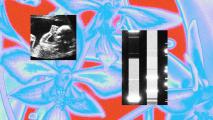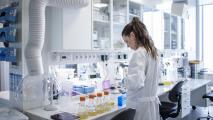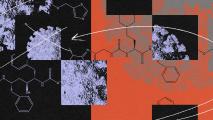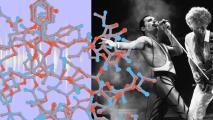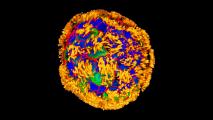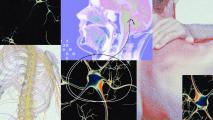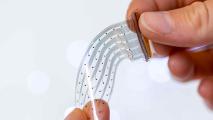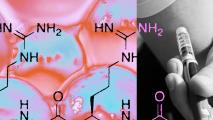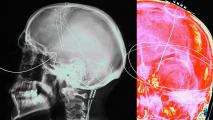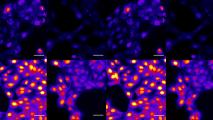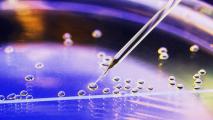
Biotech
Human history has been all but defined by death and disease, plague and pandemic. Advancements in 20th century medicine changed all of that. Now advancements in 21st century medicine promise to go even further. Could we bring about an end to disease? Reverse aging? Give hearing to the deaf and sight to the blind? The answer may be yes. And soon.
More
Untangling the genetics that underlie our facial features
Hundreds, if not thousands, of genes affect the shape of the face, in subtle ways. Researchers explain why, and how, we look like our family.
Startup can now screen IVF embryos for 1000+ diseases
Startup Orchid now offers whole genome sequencing for embryos used during IVF — but not everyone is convinced it’s worth the cost.
World’s first “self-amplifying” vaccine approved in Japan
The approval of the first saRNA vaccine could signal a new era in how we prevent and treat everything from infections to cancer.
Your “circadian rhythm peak” can affect your mental performance
What’s your chronotype? Knowing whether you’re a night owl or an early bird could help you do better on tests and even avoid scams.
HIV drug shows promise against COVID-19 and MERS
Based on promising lab tests, the HIV drug cobicistat could be an effective antiviral treatment for COVID-19.
Why do women live longer than men?
Women tend to live longer than men around the world – but the gap life expectancy is not a constant. These stats tell the story.
Experimental implant could end the need for insulin injections
An arm implant containing islet cells could one day make it far easier for people with type 1 diabetes to manage their disease.
Researchers engineer insulin-releasing cells that respond to sound waves
New research in mice attempts to eventually replace insulin injections with the sounds waves of rock music.
Tiny biobots surprise their creators by healing wound
Tiny “biobots” made from human windpipe cells, amazingly, helped damaged neural tissue to repair itself in a new study.
These 2 types of exercise can improve brain health in your 80s, new study finds
Older people who regularly engage in aerobics and strength training perform better on cognitive tests.
This startup is solving the biggest problem to creating drugs that work
Lab-grown human tissues could revolutionize drug development. This AI-powered robot can create and test 10,000 of them at once.
Study: chronic pain’s root cause could be a process in the brain
Understanding that chronic back pain originates from within the brain could lead to quicker recovery, a new study finds.
Neurosoft CEO says new brain implant is “basically 1,000 times softer” than anything on the market
Swiss startup Neurosoft’s flexible brain implant could give us a better way to analyze and stimulate the brain.
Bad sleep worsens pain. Researchers may have discovered why.
Inadequate sleep worsens pain, which makes it difficult to sleep. This cycle may stem from disruptions to the body’s endocannabinoid system.
A new hydrogel offers the hope of ending daily injections for diabetes
Type-2 diabetes often involves an intense and exhausting treatment burden, with many injections over many days. That might be set to change.
Zapping injured brains can improve cognition and memory
The lasting symptoms of a traumatic brain injury (TBI) can be treated with deep brain stimulation, according to a first-of-its kind trial.
Move over, agony aunt: study finds ChatGPT gives better advice than professional columnists
Researcher found that people preferred the AI-generated responses over those given by a professional advice columnist, and couldn’t tell which was which.
Lidocaine makes cancer cells self-destruct, study finds
Lidocaine, a common local anesthetic, activates proteins that cause certain types of cancer cells to self-destruct.
Stem cell injections could be the key to curing MS
From promising stem cell therapies to EBV vaccines, researchers are closer than ever to finding a cure for MS.
How language and social status change the developing brain
Research shows that a child’s early environment and socioeconomic status (SES) impact their language development and processing skills.
Get inspired with the most innovative stories shaping the world around us.














